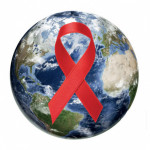In a surprising and concerning finding, researchers discovered that people living with HIV in sub-Saharan Africa who had virus that was resistant to efavirenz had a lower rate of full viral suppression when treated with a combination antiretroviral (ARV) regimen including dolutegravir.
Dolutegravir, sold as a stand-alone pill under the brand name Tivicay, is included in the ARV single-tablet regimens Dovato, Juluca and Triumeq. Efavirenz—brand name Sustiva—is included in Atripla, Symfi and Symfi Lo.
In 2019, the World Health Organization began recommending dolutegravir as the preferred first-line ARV for HIV treatment in most populations because clinical trials had shown it was safe, potent and cost-effective and had a high barrier to the development of drug resistance in people taking the drug.
Now, publishing their findings in a paper published in Nature Communications, a team of investigators from South Africa, the United Kingdom and the United States conducted genetic analyses of virus in 874 HIV-positive participants of a study conducted in sub-Saharan Africa that sought to determine how having efavirenz-resistant virus affected viral suppression rates.
The study compared people who went on a regimen including dolutegravir with those who started a regimen including efavirenz.
In the new study, 65% of those with efavirenz-resistant virus had a fully suppressed viral load after 96 weeks of treatment with that drug, compared with 85% of the efavirenz-treated participants whose virus was not resistant to the ARV. This outcome was expected.
What was not expected was that at the 96-week mark, those with efavirenz-resistant virus who took dolutegravir had a viral suppression rate of just 66%, compared with an 84% rate among those taking dolutegravir who did not have efavirenz-resistant virus.
It remains unclear what was driving this surprising outcome.
Ravi Gupta, MD, PhD, of the University of Cambridge, said in a press release: “This is a huge concern. Dolutegravir was very much seen as a ’wonder drug’, but our study suggests it might not be as effective in a significant number of patients who are resistant to another important class of antiretroviral drugs.”
He added: "What this shows is that we urgently need to prioritize point-of-care tests to identify people with drug-resistant HIV, particularly against efavirenz, and to more closely and accurately monitor treatment adherence. The development of such tests is at an advanced stage, but there is a lack of investment from funders and philanthropic donors. We urgently need agencies and individuals to step forward and help support these programs.”
To read the study, click here.
To read a press release about the study, click here.







Comments
Comments